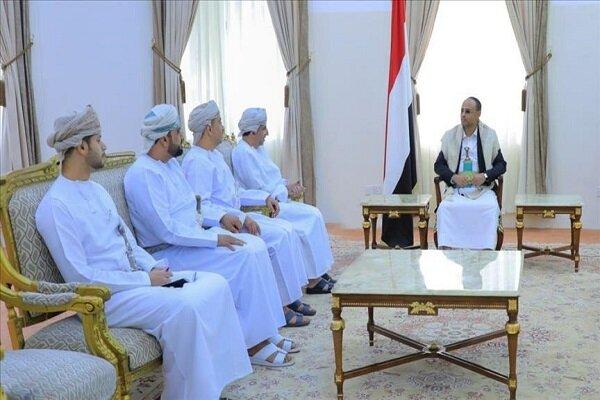Ahmad Haji Sadeghian, in an interview with the website of the Strategic Council on Foreign Relations, referred to the news published regarding the realization of concrete progress in the consultations between the two Omani and Saudi delegations in Sana’a with Yemen’s Ansarollah concerning the scenarios facing Yemen about the possibility of a ceasefire between them, adding: In the past days, two delegations from Saudi Arabia and Oman are negotiating with the leaders of the Ansarollah movement in Sana’a, focusing on ways to extend the ceasefire and establish peace in Yemen. Still, we have to consider that the reason for Saudi entering the truce and peace with Ansarollah was an impasse on all political and military fronts for Riyadh.
He added: On the other hand, on the military front, the Saudis, despite efforts of more than a year and even the removal of “Mansur Hadi,” whom many considered the main reason for the differences in that front, could not create convergence in their mercenary front, and the differences among those forces remain. Such differences are while on the opposite side, Ansarollah and the National Salvation government have managed to create a coherent and reliable military force by organizing its financial and human resources and, by using that capacity, was not only able to develop acceptable security in the areas under its control, but also put offensive operations and territorial advance on the agenda.
The analyst of Yemen affairs pointed to the recent differences and tensions between Saudi Arabia and the United States and continued: In the regional and international environment, the increasing divergence between Riyadh and Washington created an essential incentive for Riyadh to close its national security cases as soon as possible and in this way reduce its vulnerability in the current tense atmosphere of the international system.
Haji Sadeghian, referring to the warning of “Mohammed Al-Naimi,” a member of the Supreme Political Council of Yemen, regarding the continuation of the looting of Yemen’s oil and mineral resources by the resigned government and the companies that are still operating in that country, emphasized: Considering such conditions, it should be said that the ceasefire, which means the end of the Saudi military aggression on Yemeni soil, should be considered as a fixed issue, but the end of the internal conflict between the Yemeni groups, considering the partly conflicting interests of those groups and the support of the rival regional parties of such capacity to develop their interests in the vital area of Bab al-Mandab Strait is not very available.
While explaining the risks facing the Yemeni-Yemeni talks, the director of the Yemen Desk at the Mersad Research Institute pointed to Ansarollah’s emphasis on the necessity of establishing Yemeni-Yemeni dialogue without foreign interference and stated: Considering the plan to establish a transitional government and create the negotiation mechanism of Yemeni groups has been proposed under this government, it must be said that this is the path that was taken once in Yemen from 2011 to 2014 and finally led to the civil war and Saudi military aggression on Yemen.
He continued: The main problem in this field is the active presence of regional powers with partly conflicting interests in Yemen. The efforts of the Cooperation Council member countries to turn Yemen into their sphere of influence, which intensified since 2011, caused the path of the national talks in 2013-2014 to completely deviate. For such reasons, considering that currently there is no established and powerful government in the entire territory of Yemen, and there is no sign of the end of the efforts of the countries of the region, especially Saudi Arabia and the UAE, to develop their sphere of influence in Yemen, we cannot be optimistic about the future of Yemeni-Yemeni negotiations in the existing plan of the Saudis.
Haji Sadeghian explained: One of the most critical signs of Saudi Arabia’s continued efforts to expand its influence in Yemen is the claim of “Mohammed Al Jaber,” the Saudi ambassador to Yemen, after meeting with Ansarollah officials in Sana’a. In a series of tweets he published after the news of his meetings in Sana’a, he announced that his mission was to mediate between Yemeni groups to create a mechanism for Yemeni-Yemeni negotiations.
He added: At the same time, the UAE, which has the right to have a military presence in Yemen by signing a security agreement with the government of “Rashad Al-Alimi,” has increased the fact of its troops in the “Al-Ryan” military base in “Hadhramaut” Province. These two actions, just as an example, show the continuation of the previous approach of the UAE and Saudi Arabia to develop their influence through local political groups in Yemen, which will prevent the formation of a powerful government in the entirety of Yemeni territory and ultimately repeat the experience of the events of 2011 to 2014.










0 Comments